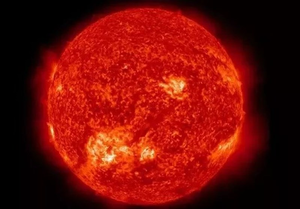Difference between revisions of "Red Giant"
| Line 17: | Line 17: | ||
:[https://www.amazon.co.uk/gp/product/1471851370/ref=as_li_tl?ie=UTF8&camp=1634&creative=6738&creativeASIN=1471851370&linkCode=as2&tag=nrjc-21&linkId=01c69b0ae058f809cf636033e6ba793e ''Red giants, page 252, GCSE Physics, Hodder, AQA ''] | :[https://www.amazon.co.uk/gp/product/1471851370/ref=as_li_tl?ie=UTF8&camp=1634&creative=6738&creativeASIN=1471851370&linkCode=as2&tag=nrjc-21&linkId=01c69b0ae058f809cf636033e6ba793e ''Red giants, page 252, GCSE Physics, Hodder, AQA ''] | ||
:[https://www.amazon.co.uk/gp/product/1782945970/ref=as_li_tl?ie=UTF8&camp=1634&creative=6738&creativeASIN=1782945970&linkCode=as2&tag=nrjc-21&linkId=a120d24dcc7cc7a58192069a3aafc1d2 ''Red giants, pages 318, 319, GCSE Physics; The Complete 9-1 Course for AQA, CGP, AQA ''] | :[https://www.amazon.co.uk/gp/product/1782945970/ref=as_li_tl?ie=UTF8&camp=1634&creative=6738&creativeASIN=1782945970&linkCode=as2&tag=nrjc-21&linkId=a120d24dcc7cc7a58192069a3aafc1d2 ''Red giants, pages 318, 319, GCSE Physics; The Complete 9-1 Course for AQA, CGP, AQA ''] | ||
| + | |||
| + | ====Edexcel==== | ||
| + | |||
| + | :[https://www.amazon.co.uk/gp/product/1292120223/ref=as_li_tl?ie=UTF8&camp=1634&creative=6738&creativeASIN=1292120223&linkCode=as2&tag=nrjc-21&linkId=068ecf40278c32406a7f1c6e66751417 ''Red giant stars, page 122, GCSE Physics, Pearson Edexcel ''] | ||
| + | :[https://www.amazon.co.uk/gp/product/1782948163/ref=as_li_tl?ie=UTF8&camp=1634&creative=6738&creativeASIN=1782948163&linkCode=as2&tag=nrjc-21&linkId=0fdbfd5dd397d6e24a9dfb250f08587f ''Red giants, page 188, GCSE Physics, CGP, Edexcel ''] | ||
Latest revision as of 06:43, 28 November 2019
Key Stage 4
Meaning
A red giant is a star in which the Hydrogen isotopes have run out and energy is released from the fusion of Helium.
About Red Giants
- When a main sequence star runs out of Hydrogen the core collapses because there is an inward pressure of gravity but no outward pressure from fusion. Eventually the core collapses to heat the core enough that fusion of Helium can occur.
- As the core of the red giant collapses the outer layers begin to spread further from the core making the star grow in volume.
- A red giant is much cooler than other stars but also much brighter due to its larger surface area.
References
AQA
- Red giant, page 284, GCSE Physics; Student Book, Collins, AQA
- Red giants, page 234, GCSE Physics; Third Edition, Oxford University Press, AQA
- Red giants, page 252, GCSE Physics, Hodder, AQA
- Red giants, pages 318, 319, GCSE Physics; The Complete 9-1 Course for AQA, CGP, AQA
